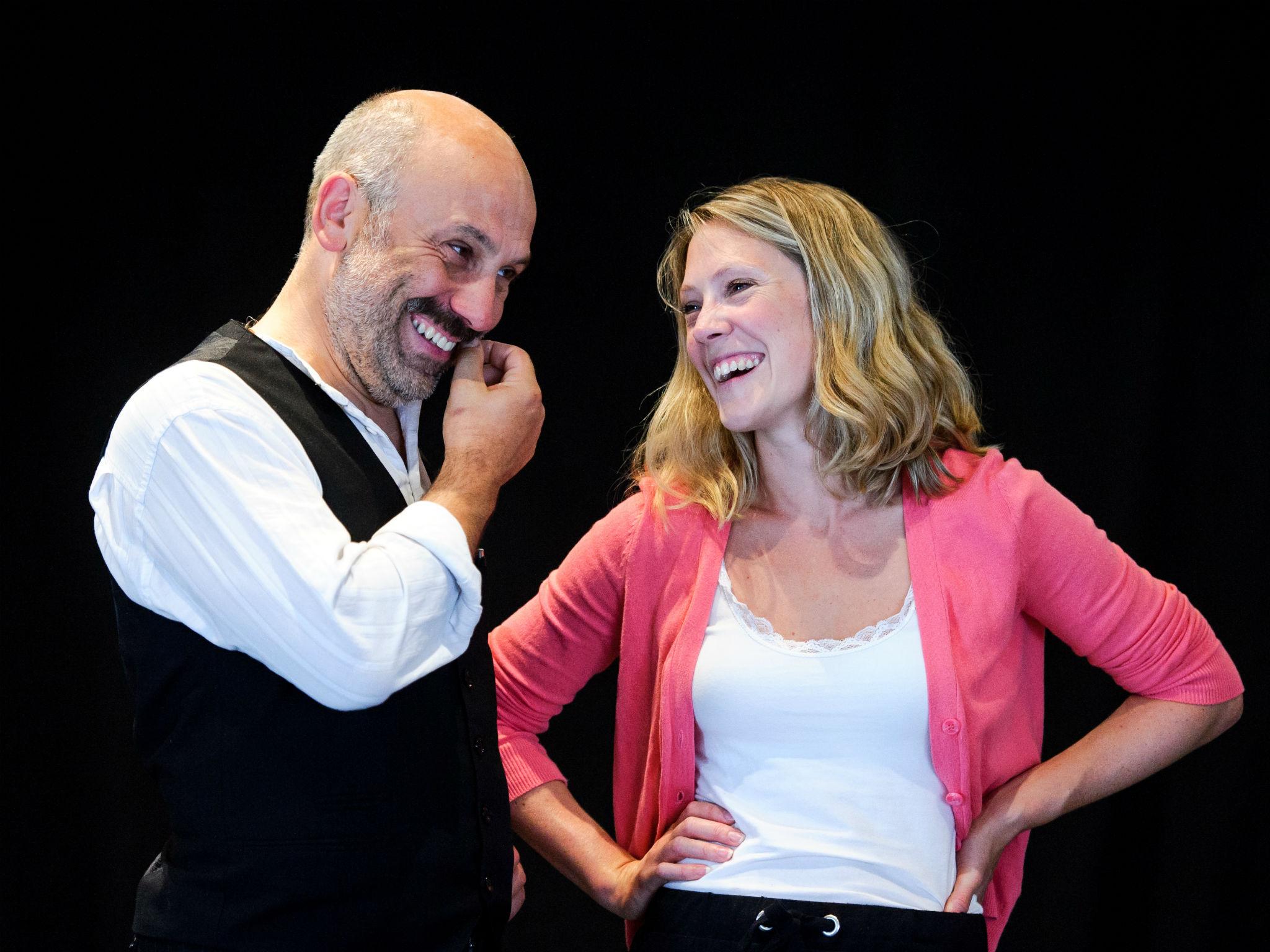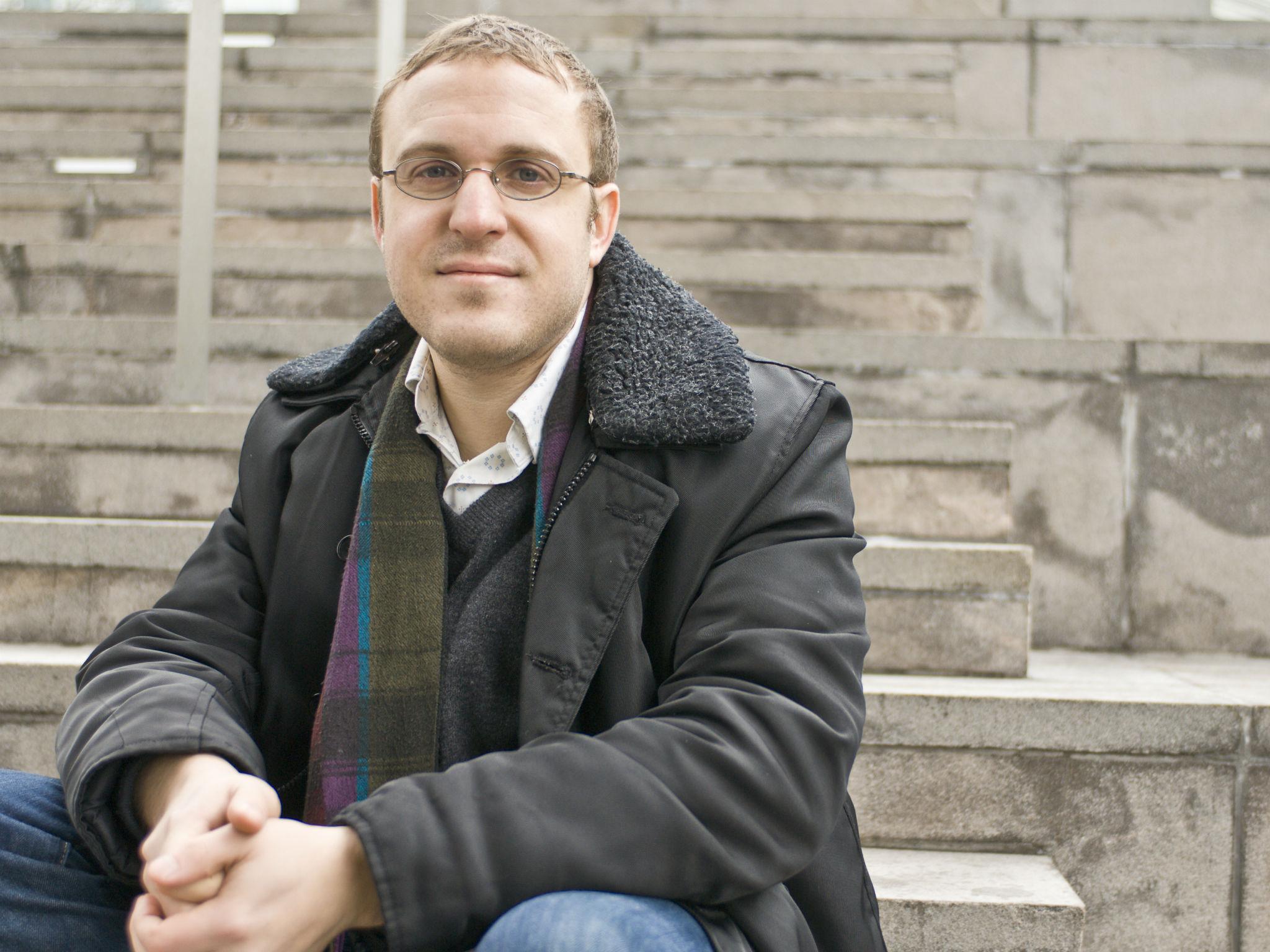Adding Machine: The themes of Elmer Rice’s 1922 play seem never more relevant than now
Joshua Schmidt, composer of Adding Machine: The Musical, tells how this show asks us to look closer at ourselves, and to feel compassion and empathy as we fall into a most uncertain abyss

Your support helps us to tell the story
From reproductive rights to climate change to Big Tech, The Independent is on the ground when the story is developing. Whether it's investigating the financials of Elon Musk's pro-Trump PAC or producing our latest documentary, 'The A Word', which shines a light on the American women fighting for reproductive rights, we know how important it is to parse out the facts from the messaging.
At such a critical moment in US history, we need reporters on the ground. Your donation allows us to keep sending journalists to speak to both sides of the story.
The Independent is trusted by Americans across the entire political spectrum. And unlike many other quality news outlets, we choose not to lock Americans out of our reporting and analysis with paywalls. We believe quality journalism should be available to everyone, paid for by those who can afford it.
Your support makes all the difference.Adding Machine: A Musical premiered in Chicago in February 2007 and off-Broadway in New York in February 2008 - coincidentally just prior to the stock market crash that marched us into the great recession in September 2008. (I can assure you none of us involved with its creation had any foresight as to what was to occur.)
The piece, adapted from Elmer Rice’s 1922 play, centres around Mr Zero, the anti-hero to rival all anti-heroes, and his descent into oblivion amidst the oncoming rush of the 20th century economy and its accompanying technological integration that eliminated and replaced once-necessary, if tedious, occupations.
The continued ascent of technology in the modern workplace since that point has of course not only increased efficiency and productivity, but also redefined the employment market, leaving many people looking lacking necessary skills, or the ability to keep up with ceaseless change within their occupation, out of luck and desperately seeking a job.

Now, nearly nine years after the musical's inception, Adding Machine re-emerges in London at the Finborough Theatre at a time when both the US and the UK are experiencing a time of great articulated political and ideological divide. When asked about the show’s relationship to a “post-Brexit” Britain, or the general state of global economic affairs, my feeling is that it is more than a conversation about income equality – although that is a huge part of it. It’s more than a conversation about concentrated urban areas vs less concentrated population centres or rural areas.
I think this is a conversation about the human and consequently emotional cost of what has now become the 21st century economy. We are talking about people – flesh and blood – who feel, and in many ways are, cut off from the monetary benefits reaped by only a small percentage of the global population. We are talking about people who feel they have no voice, no recourse.
In America, this conversation is perhaps even more immediately dangerous as it is infused with violent and racial rhetoric accompanied with readily available guns. From afar, I saw a map that indicated within England a great majority of people in areas outside London voted to break the bonds of European community that had in some shape or form (the economic codification of this union came much later) existed since the Great War. Some people seemed aghast that “common folk” were even given a voice in the discussion – much the same way some are aghast by the rise of “Trumpism” in the US. I found it curious that, when interviewed, those in the UK who voted to leave either did not have a complete grasp of the consequences of their vote or, better yet, didn’t care - instead they felt sticking it to the “man”, much the way Mr. Zero “sticks” it to his boss who just terminated his employment. I sense much the same mentality in the US within the Trump constituency.
Conversely, I have also found it curious that some of those in favour of remaining, or those in support the status quo, seemed almost intractable in their stance against such dissent – that such action was the mark of stupidity, blindness, a nostalgia for some idea of "Great Britain” or “America” that never ever truly existed, at least for those folks voicing through the ballot their anger, fear and bitterness.
I guess, in some universe, that “Brexit” vote did not need to happen. Perhaps in a similar universe the Republicans could have circumvented their base in favour of a more palatable candidate. Or Democrats could have allowed a more radical vision a shot at the general election instead of what is seemingly a reflection of the current status quo. But in this universe, it seems the veil has been lifted – and we are on our way toward a great unknown.
Adding Machine the play came into existence in a month-long flash of Elmer Rice’s pen in a gut-level, stream-of-consciousness response to those disenfranchised in rapid fashion by the introduction of Burroughs adding machine into the workplace. Yes, this was a cost-effective efficient business move; yes, this machine replaced whole floors of people in near-mindless occupations; yes, in theory there exists a whole bevy of much more satisfying occupations in the world. But, just like Brexit, just like the election outcome looming here in the US in November, was society (and the individuals within that society) ready for the change? What happens to these people? Are they just a drag on the coefficient of life and commerce boiled down to numerical abstraction? And is that abstraction even accurate, or is modern economics just another machine out of control, growing faster than the actual human and natural resources caught helplessly with its complex inner workings?
What I do know is that anger, fear and the impulse for human survival are real. The apathy within that grand encompassing abstract term “disenfranchised” are real. People all around feel this way. The data supports it. The media shows us the images that support it. More than likely it has always been there, not just present in a bunch of “know-nothings”. Many intelligent, hard-working people feel this way. Emotion is real, and where there is emotion I have usually found there is music. So I wrote that music down, hoping you might like it, and that you like the show. Rest assured librettist Jason Loewith and I tried to be as fair, as empathetic and as articulate as we could in rendering the central character of Mr Zero and these characters within the context of this Expressionist classic play from the Twenties. Now it’s a musical. Some say it’s scathing, or it’s funny, or it’s satirical. I think it’s romantic.
How can we so easily discount or dismiss the expressed vote of the majority of the populace without just kicking the can further down the road and allowing that emotion to fester even more? And if you do, then what happens when the veil is lifted again? Is everybody emotionally or mentally cut out for whatever economic model we exist in? Or are we merely functioning drones within a machine. And if for whatever reason we fail willingly or by chance to fit the mould – then what? Does that necessarily make people “less-than”? And if so, what do we do with those folks? Where, in all this mess of equations that fosters such antipathy, lack of security, conflict and strife lies the “human being”?
Perhaps, before the world goes off the rails in such humorously absurd and satirical fashion like Rice’s tale inevitably does, this show asks us to maybe look a little closer at ourselves, and a little closer at others and try to understand, to feel compassion, attempt empathy, perhaps even go as far as to reconsider the systemic model that is causing us to fracture as we fall into a most uncertain abyss.
‘Adding Machine: A Musical’ opens at the Finborough Theatre, London, on Friday
Join our commenting forum
Join thought-provoking conversations, follow other Independent readers and see their replies
Comments